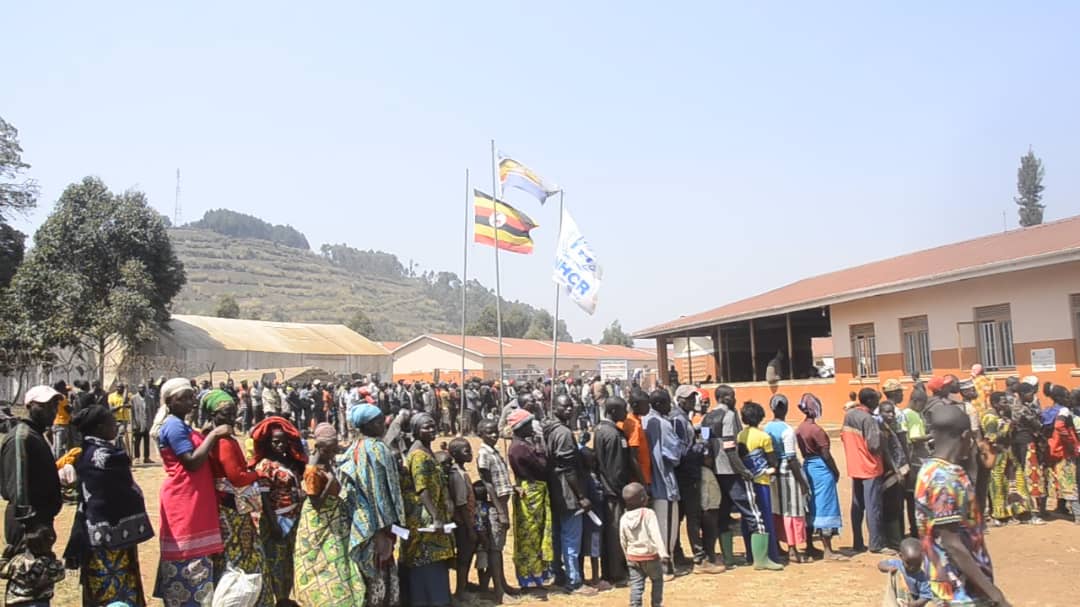Govt, UNHCR Warn of Refugee Funding Crisis as Support Operations Face Cuts

The government and the United Nations Refugee Agency (UNHCR) have issued a joint appeal to the international community amid worsening global funding shortages that threaten the country’s refugee support operations.
In a statement released on May 30, 2025, the Government of Uganda and UNHCR acknowledged that severe financial constraints have forced difficult decisions, including staff layoffs and service cutbacks.
These measures, they said, are being implemented with close cooperation and consultation, but the impact on humanitarian workers and refugee communities is already apparent.
“We deeply regret the effect on affected personnel and the refugees we serve,” the statement said.
The crisis comes as Uganda, already the third-largest refugee-hosting country in the world, faces a sharp influx of new arrivals.
In the first five months of 2025, over 110,000 refugees crossed into the country, bringing the total to nearly 1.9 million. Yet UNHCR Uganda is operating with only 17% of its required funding for 2025.
“This is not sustainable,” warned Eng. Hilary Onek, Uganda’s Minister for Relief, Disaster Preparedness, and Refugees.
“Uganda is doing its part, but we cannot shoulder this burden alone. International solidarity must match the scale of our commitment.”
Uganda’s open-door policy has been praised as one of the most progressive refugee frameworks worldwide.
Refugees in Uganda are allowed to work, access education, and move freely — rights often denied in other host countries. However, without adequate funding, even this model risks collapsing.
UNHCR Country Representative Matthew Crentsil echoed the call for urgent global action. “Uganda is a beacon of hope in a region plagued by displacement.
But hope doesn’t run on empty pockets,” he said. “We need immediate and sustained financial backing to protect the lives and dignity of millions.”
Both the Government and UNHCR reaffirmed their strong partnership, pledging continued transparency and alignment with Uganda’s national refugee priorities despite the difficult circumstances.
Still, the message to donors was clear: Do more, and do it now.
Uganda’s refugee crisis is not isolated. Globally, humanitarian aid budgets are being cut even as displacement reaches record highs — from conflicts in Sudan and the Democratic Republic of Congo to crises in Gaza and Ukraine.
As needs rise, donor fatigue and shifting geopolitical priorities leave many vulnerable people without support.
For Uganda, a long-standing pillar of regional stability and hospitality, the lack of adequate funding feels like a betrayal.
“It’s not just about numbers. It’s about human lives, futures, and fragile peace,” said a UNHCR staffer involved in negotiations, speaking anonymously.
“Without funding, Uganda’s refugee model could collapse under its own weight.”
The joint statement concluded: “Sustained international solidarity is essential to uphold Uganda’s exemplary refugee policy and ensure continued protection for those in need.”
Uganda remains committed to offering sanctuary. Now it is the world’s turn to step up.



13 Comments
Thomasutelo
08 Jun '25Kennethfef
17 Jun '25avenue17
21 Jun '25ScottPug
25 Jun '25AlbertoLUP
25 Jun '25AlbertoLUP
26 Jun '25Jameshep
26 Jun '25Peterperee
27 Jun '25RonaldFef
28 Jun '25AlbertoLUP
29 Jun '25Robertcob
10 Jul '25VaughnDix
31 Oct '25Charlesviect
06 Feb '26